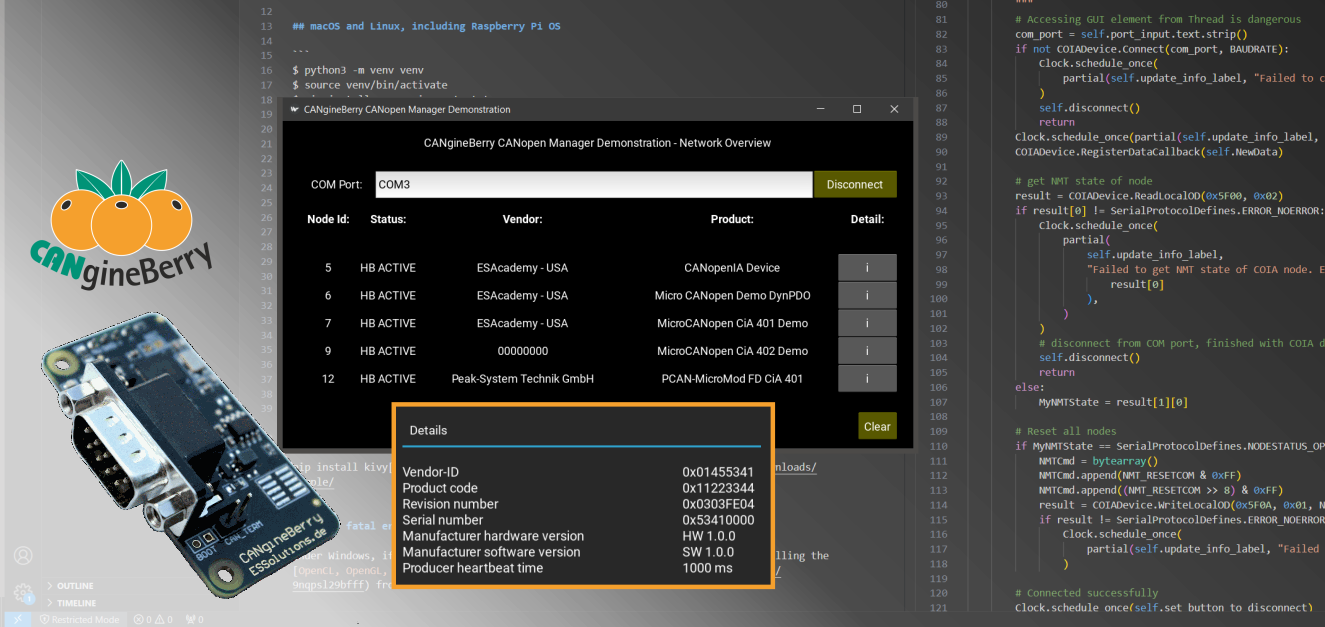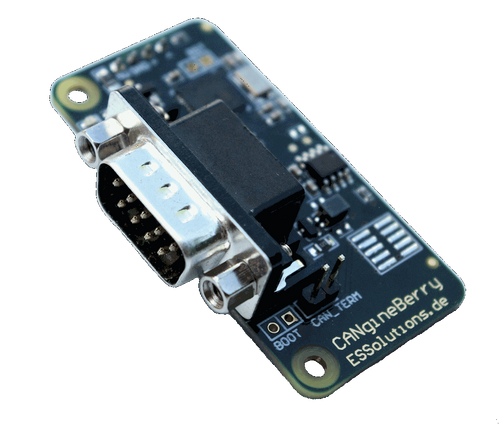Blog
Recent Posts
Python Code Example for CANgineBerry’s CANopen Manager
Posted by on
 Embedded Systems Academy has released a new software update for the CANgineBerry. This update includes a Python example designed to streamline network management for developers using Linux, Windows, and macOS. The example utilizes the provided CANopen Manager firmware to visualize and efficiently manage devices on a CANopen network.
Embedded Systems Academy has released a new software update for the CANgineBerry. This update includes a Python example designed to streamline network management for developers using Linux, Windows, and macOS. The example utilizes the provided CANopen Manager firmware to visualize and efficiently manage devices on a CANopen network.
The CANgineBerry goes beyond basic CAN interfaces by handling the complete CANopen Manager functionality. This means the module can automatically scan the network, detect new devices, and set up the necessary Process Data Objects (PDOs) without manual intervention. With this automated feature, users can easily access the Object Dictionary entries for the Manager and the connected devices, eliminating the need to write complex code.
The Python example demonstrates these features using a simple graphical user interface (GUI). When connected to a CANgineBerry, the script accesses detected devices, retrieves their details as needed, and presents them in an easy-to-understand display. This tool allows quick access to multiple devices on your CANopen network, whether yoing Linux, macOS, or Windows.
By Developers can focus on higher-level application development by delegating low-level CANopen management tasks to the CANgineBerryhe Python-based GUI, which makes configuring and monitoring CANopen networks easy and provides instant control over devices.
This update strengthens CANgineBerry’s position as more than a CAN bus interface. It remains a robust solution that simplifies CANopen network management, offering flexibility and user-friendliness for embedded systems developers.
To download the example, go to: https://cangineberry.com/
 CANgineBerry - CANopen Module for Raspberry Pi
CANgineBerry - CANopen Module for Raspberry Pi
The CANgineBerry for CANopen is an active CAN Bus co-processor module that uses a regular UART communication channel toward the host system. With its independent 32-bit microcontroller, the CANgineBerry can efficiently execute CAN Bus protocols with challenging timing demands, such as CANcrypt or CANopen, with response times of under 10 ms.
Depending on the configuration, the CAN Bus communication can run within 50 ms after power-on, even if the host system takes significantly longer to boot. More information...
 Loading... Please wait...
Loading... Please wait...
